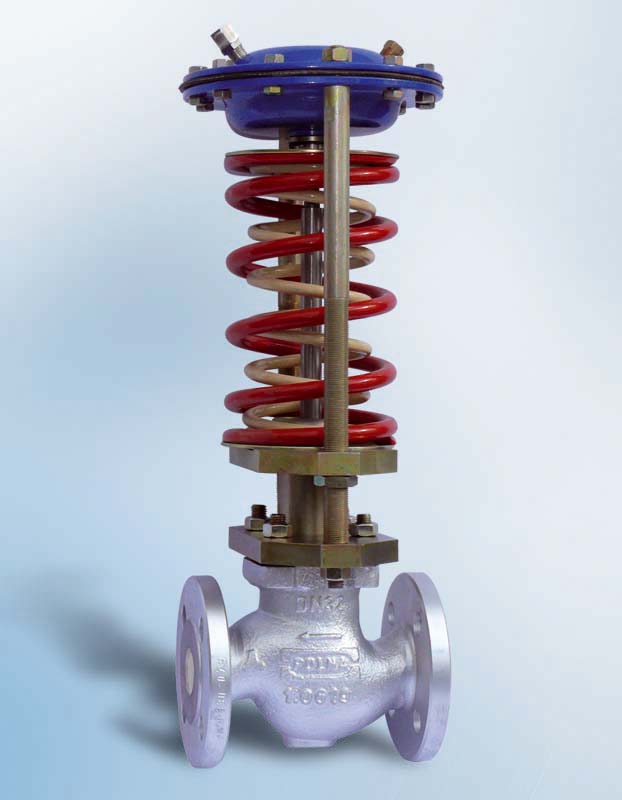
PRESSURE REDUCER RCP-3
FUNCTION
Pressure reducers are designed to maintain constant pressure downstream the valve regardless of fl uctuation of supply pressure. Regulators are used in steam- and air- pipe networks in order to prevent the installation against excess pressure increase. Other fluids are also permissible.
CONSTRUCTION
Reducer comprises three main units:
• valve (1), with stem bellow sealed,
• diaphragm actuator (2),
• control pressure adjuster (3).
CHARAKTERISTICS
• steel and stainless steel materials used
• maintenance-free bellows seal ensures high efficiency of the reducer
• high tightness of the shut-off due to the application of plugs with PTFE, EPDM and NBR sealings
• design reducing the noise level
• the possibility of fitting with piston or bellows actuators
PRINCIPLE OF OPERATION
Fluid fl owing through the valve constitutes the driving force of the regulator. The impulse of regulated pressure, as measured downstream the valve, is applied to the actuator pressure chamber (2). The resulting pressure on the actuator diaphragm is counterbalanced by the spring tension in the adjuster set (3).Thus, a change in the regulated pressure causes valve (1) opening or closing, and allows for keeping the reduced pressure constant at the valve outlet. .
Technical data
| Regulator’s Size | DN 15; 20; 25; 32; 40; 50; |
|---|---|
| Nominal pressure | PN 16; 40 |
| Kvs coefficient | Kvs 0,6 ...33 m3/h |
| Max. fluid temp | 0 / +300°C |
| Setting ranges | 0,1 … 11,0 bar |
| Flow characteristics | linear |
| Leakage class | • IV class PN-EN 60534-4 • VI class PN-EN 60534-4 |
| Body Materials | • GP240GH (1.0619) • GX5CrNiMo 19-11-2, (1.4408) |
 37-700 Przemyśl, ul Obozowa 23
37-700 Przemyśl, ul Obozowa 23 np@reduktory.com.pl
np@reduktory.com.pl 16 678 30 20,
16 678 30 20, 
